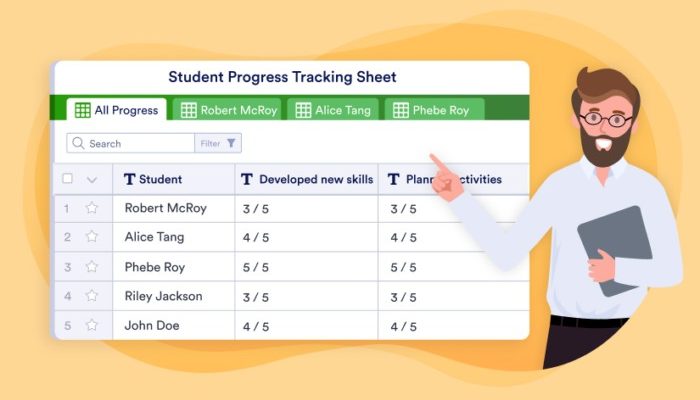In the journey of academic pursuits, whether as a student, a professional pursuing further certifications, or an individual engaged in self-directed learning, understanding one’s progress is paramount. It’s not merely about accumulating knowledge; it’s about strategically navigating the learning landscape, identifying strengths, addressing weaknesses, and ultimately achieving one’s educational objectives. The ability to effectively track academic progress over time transforms learning from a passive absorption of information into an active, data-driven endeavor, leading to more focused efforts and superior outcomes.
The foundation of effective academic tracking lies in setting clear, measurable goals. Before embarking on any course of study, take the time to define what success looks like. This goes beyond simply aiming for a high GPA or a certificate of completion. Consider what specific skills you want to acquire, what concepts you need to master, and how these achievements will contribute to your broader professional or personal aspirations. For instance, if you’re undertaking a course in financial analysis, your goal might not just be to pass, but to confidently perform valuation models and articulate investment strategies. Establishing these tangible objectives creates a benchmark against which your progress can be meaningfully assessed. Without a clear destination, any path will do, but only with a defined goal can you truly measure how far you’ve come.
Once goals are established, the next crucial step involves consistent data collection. This doesn’t necessarily mean elaborate spreadsheets or complex software, although those can be useful. It begins with diligently recording your performance on assignments, quizzes, exams, and projects. For example, if you’re taking an online marketing course, keep a record of your scores on weekly quizzes on SEO, social media advertising, and content creation. Beyond numerical grades, pay attention to feedback provided by instructors or mentors. This qualitative data is often more valuable than a mere percentage, offering insights into areas where your understanding might be superficial or where your application of concepts needs refinement. If an instructor consistently points out a lack of clarity in your written arguments, that’s a recurring theme to address rather than just a one-off error. Actively solicit feedback whenever possible, viewing it not as a critique, but as a compass guiding you towards improvement.
The real power of tracking emerges when you begin to analyze the collected data. This analytical phase transforms raw scores and comments into actionable insights. Look for patterns over time. Are your scores consistently lower in certain subject areas, such as statistics in a business analytics program, or perhaps in specific types of assessments, like essay questions? Identifying these recurring challenges allows you to allocate your study time more efficiently. Instead of broadly reviewing everything, you can target your efforts towards areas of consistent difficulty. Conversely, recognize and celebrate your strengths. Understanding where you consistently excel can boost confidence and even highlight potential areas of specialization or future career paths. For instance, if you consistently achieve high marks in case study analyses in a management course, it might indicate a strong aptitude for strategic thinking and problem-solving, which could be leveraged in leadership roles.
Beyond individual performance metrics, consider the broader context of your learning environment. Are there resources you’re underutilizing? Perhaps your university offers a tutoring center for challenging subjects, or your online platform provides supplementary materials that you haven’t explored. Are your study habits truly effective, or are there ways to optimize your learning process? Regularly reflecting on these external and internal factors can significantly impact your progress. For instance, if you notice your scores dipping in late-semester assignments, it might indicate burnout or a need to adjust your time management strategies earlier in the term. This holistic view of your academic journey ensures that you’re not just reacting to results, but proactively shaping your learning experience.
Finally, effective academic tracking culminates in informed adjustments and a commitment to continuous improvement. The data you’ve gathered and analyzed is only valuable if it leads to changes in your approach. If your analysis reveals a consistent struggle with quantitative reasoning, dedicate extra time to practice problems, seek out supplementary tutorials, or form a study group with peers who excel in that area. If you discover that active recall techniques significantly improve your retention, integrate them more consistently into your study routine. This iterative process of setting goals, collecting data, analyzing performance, and making adjustments creates a virtuous cycle of improvement. It fosters a mindset of growth, where challenges are viewed as opportunities for refinement rather than insurmountable obstacles. Ultimately, tracking academic progress over time isn’t just about grades; it’s about cultivating self-awareness, developing effective learning strategies, and empowering yourself to achieve enduring educational success.




